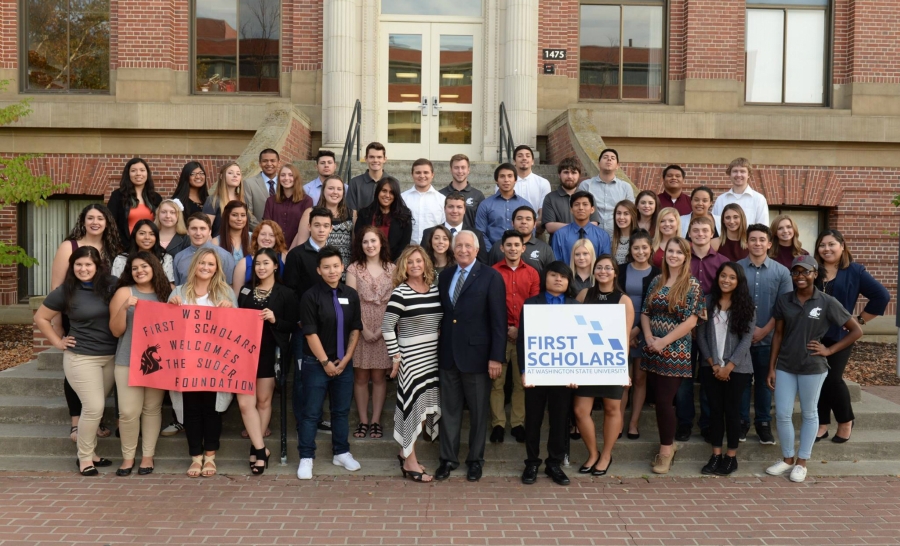The Suder Foundation History
Diane Schorr J.D., CAPⓇ, FirstGen Forward / / November 27, 2017

The Suder Foundation was founded from Eric and Deborah Suders’ vision to design an innovative program that would dramatically increase the graduation rates of first-generation college students—those who are first in their family to attend college. For several years prior to starting the foundation, the Suders endowed scholarships at The University of Texas at Austin (UT) and West Virginia University (WVU) in order to help students with middle-range academic credentials and financial need who wanted to go to college but couldn’t afford it. They naïvely thought that financial assistance alone would assure the students’ success. They quickly learned this was not the case.
At that time, only 36 percent of first-generation students nationally were graduating. Through involvement with Student Support Services at WVU, they discovered the distinct challenges first-generation students face, and how important personal support and services are for their success. Using a business mindset, they reasoned that if they could identify these students’ specific challenges, measure, mitigate or even eliminate them, then more students would stay in school and graduate. This has proven be true.
The foundation was launched in 2008 as an operating foundation; this type of organization must be significantly involved in running its own programs. This structure differs from typical foundations which give grants to fulfill other organizations’ missions. The Suder Foundation approaches its work as a collaborative, entrepreneurial, and engaged partner. Funding since inception furthered the foundation’s signature program – First Scholars®, which is operated in partnership with its affiliated universities.
First Scholars is designed to make an impact at the student, campus, and national levels. Its network of affiliated universities interactively partner with the national office. The campus-based First Scholars programs serve as living laboratories which support discovering, developing, and validating effective practices for first-gen student success. Working together to convene campus representatives from both leadership and operational level enables the foundation to shape how universities strategize, innovate, and approach first-gen success. This network continually explores how to better navigate the challenges and opportunities for student success in higher education.
As efforts have taken hold, the foundation has seen a shift in how higher education recognizes first-gen students—not as disadvantaged, but as they truly are: full of depth and potential, and ready to engage the world around them.
The foundation is evolving its vision for First Scholars based on these changes and opportunities. Future endeavors include continuing to pilot scalable concepts and models with currently affiliated universities.
Through its new partnership with NASPA to launch The Center for First-generation Student Success, the foundation will advance the groundwork laid by First Scholars. Goals include expanding the network of First Scholars-affiliated universities through updated models and disseminating toolkits, which will offer approaches targeting both students and higher education professionals to increase first-generation student success. Through the Center, the foundation will leverage its success and entrepreneurial leadership to drive awareness and elevate first-gen issues, inspire systemic impact, and inform national policy.


